2022 Virtual Conference
June 10–13 & 18Over the conference week, we engaged in a lot of open and important conversations, learned from the experts and each other and uncovered inspiring people who are part of our community.
The videos are broken down into specific categories. Please click the links below to advance to the section you would like to view:
Opening Video
Welcome and Opening Remarks
Overview of the Research Sessions
To view the video of this session, click the Opening Remarks video above and go to the 34:22 time mark.
Research/Medical Sessions
Introduction to the GRN (Global Research Network)
How to Read a Genetic Diagnosis: What do these Cryptic Letters and Numbers Mean?
A genetic diagnosis is usually the start of your journey into the world of PURA. While the diagnostic letter from your geneticist contains important information, it seems to be more of a cryptographic puzzle than an understandable explanation. In this short video, Dr. Dierk Niessing will explain the logic behind it and show you how to interpret such a genetic diagnosis letter.
Antibodies against PURA and PURB – Making the Invisible Visible
Antibodies are a crucial component of the immune system, which is a defence mechanism against bacterial and viral pathogens such as SARS-CoV-2. Antibodies can bind to intruding pathogens with high accuracy and mark them for their elimination. Scientists can utilize this feature of antibodies as biotechnological tool to tag cellular components they are interested in and make them visible under the microscope. In this presentation, we will demonstrate how antibodies are used to make the PURA protein or its close relative PURB visible within cells. With the help of a so-called fluorescence microscope, we can observe both proteins in cells. Because cells are divided into compartments with different functions, observing the respective location of these two proteins in the cell can give insights into their functions. Our studies revealed that PURA is primarily located in the cytoplasm and may contribute to transporting molecules across the cell. In contrast, PURB is strongly located in and around the nucleus. The nucleus contains the genetic information in form of DNA and harbors proteins necessary for maintaining DNA integrity and reading the information saved in the DNA strand. Hence, although very similar in their structure, PURA and PURB might take on different roles in the cell. These specific antibodies not only help us to understand PURAs and PURBs molecular function in the cell but also give us the opportunity to investigate patient cells and compare them to healthy cells with non-mutated PURA protein.
Feedback from the PURA Syndrome Global Patient Registry
The PURA syndrome global patient registry was formally launched in January 2022. Dr Hunt and Prof Baralle will explain why the patient registry is important, how it operates and what it is expected to achieve in the long-term. Although still in its infancy, some early feedback will be provided from the data collected over the first few months of operation.
Neonatal Hypotonia and the Diagnostic Quest: The Perspective of a Neonatalogist and Neuromuscular Specialist
Neonatal hypotonia poses a challenging clinical dilemma owing to the multitude of possible diagnoses that can be either central or peripheral in nature. The first diagnostic modality available to the treating physician is the physical exam which can often help elucidate the underlying pathology, which is supported by the perinatal history, laboratory and genetic investigations, and brain imaging. Among the challenges faced by treating clinicians include: evolution of the neurological exam, multiple confounding factors in the perinatal history (infection, perinatal depression, resuscitation), long turnaround time of genetic tests, and nonspecific test results. We present the case of a child that was ultimately diagnosed with the rare PURA syndrome and demonstrated a typical constellation of clinical features such as hypotonia, apnea, hypoventilation, poor feeding and temperature dysregulation. The child underwent multiple diagnostic (video EEG, oropharyngeal swallow study, airway evaluations, polysomnogram, muscle biopsy, genetic testing, brain imaging) and therapeutic interventions (Nissen fundoplication, gastrostomy tube placement, pyridostigmine initiation) to progress with care and ultimately underwent an electromyography with nerve conduction study which was abnormal.
Final Elements Panel
Gene Therapy Sessions
The Great Therapeutic Possibility: Trials and Tribulations
Dr. Jessica Duis will present on the potential avenues of therapeutic development and where we might meet some challenges as the field inches towards personalized medicine.
Making an Impossible Gene Therapy Possible: Our Pre-clinical Journey for Rett Syndrome (RTT)
*This session was NOT recorded*
RTT is a neurodevelopmental disorder caused by mutations in the dose-sensitive transcription regulator MeCP2. For years, researchers have pursued various strategies to maintain the efficacy of MECP2 gene therapy while mitigating deleterious side effects associated with supraphysiological MeCP2 expression. These challenges have proven to be a catalyst for innovation. Dr. Sinnett’s recent paper in Brain discusses how this innovation can pave the way for treating other rare disorders. Conflict of interest: Dr. Sinnett receives inventor royalties for published intellectual property discussed in this presentation.
Therapy Sessions
Successful Feeding Therapy followed by Coffee with Rachael
Eating is fundamental to life and the parent-child connection is often formed during feeding times. When eating is difficult, feeding can become the worst part of your day. You may dread mealtimes. You may lay awake at night worrying that your child will never learn to eat.
In this talk, you will learn how children eat. You will also learn what feeding therapy should look like and what to expect from a feeding therapist. Finally, you will acquire techniques to make mealtimes less stressful and more inclusive for your child. You will see, through videos, how Rachael successfully taught one child with PURA to eat.
Promoting Health, Healing, and Well-Being through Food is Medicine
Food is Medicine® is The Center For Discovery’s philosophy that brings together farmers, chefs and nutritionists to cultivate a food program that promotes health, healing, and quality of life among our students and those who reside here. Long ago, we understood the power of food and the relationship between health and nutrition, which has been at the forefront of our care model for decades. Now more than ever, as we continue our revolutionary research on the ways in which food can be employed to promote health, healing, and well-being, The Center for Discovery® is in a unique position to share this philosophy with the world.
Advocacy Sessions
Building Your Team: Developing Effective Communication and Carryover
The needs of children and families receiving therapeutic support can vary widely. However, the need for communication, consistency, and carryover are universal. During this workshop, you’ll learn the most effective and efficient strategies for working together with your child’s therapists and caregivers, in order to move away from the “silo approach.” We’ll discuss options for finding team members who believe in a collaborative approach and optimal ways for integrating their recommendations into your daily routine.
Personal/Inspirational Sessions
Putting on Your Armor: How to Push Back on Ableist Stigma in The Everyday
It isn’t just a coincidence that disabled people and their families often have similar experiences of stigma when they go out into public. From Anchorage to Miami, we are ridiculed, mocked, and pitied. This may be surprising since the catch all category of “disability” is so broad and encompasses so many ways of experiencing the world. After all, being autistic is quite different from having a spinal cord injury and having epilepsy is an entirely different experience than having dwarfism. Nevertheless, one experience that we all share and seems to bind the disability community together is that of ableist stigma, the remarkably similar hostile reactions we receive from just existing in the world as disabled. This talk will explore the common characteristics of this stigma, some of its root causes, and strategies disabled people and our families can use when we are subject to it so often. Ultimately, it will be argued that the best thing we can do to resist stigma is create community among ourselves as disability activists and allies.
Roundtable Parent Discussion: The Impact of External Factors on Our Children’s Health and Behavior
*This session was NOT recorded*
Together we are stronger and we are always stronger when we share information. This session is an opportunity for parents or caregivers, to share and learn from each other about different experiences we have had in which external factors have been a key element in their PURA child’s health or behaviour.
To help us prepare for this interactive session, please submit any questions, successes, failures, or other personal experiences you have had as we all travel this PURA road together. Your insights will help start the conversations!
Building Confidence with Body Language and Communication Skills
*This session was NOT recorded*
This session will focus on a dynamic blend of discussion and data focused on critical communication insights, skills and strategies you can use right away. We will discuss the importance of communication style using the Four-Quadrants tool. You will learn about your personal communication style and how to better observe, identify, and respond to others to build rapport and trust more easily. Body language plays a critical role in your ability to communicate effectively and is key to managing every day and not so everyday situations. By exploring how we form impressions and how to use your body language, you will leave this session better able to communicate confidently, calmly, and persuasively when it matters most.
**You may go to her website at https://julieterickson.com/ and take her 3 minute quiz to discover your own communication style.**
Self Care Sessions
The Kindness Method
*This session was NOT recorded*
We’ve seen the kindness, support and compassion you show others. We see how you’ve championed your families and provided them with the affirmation that they’ve needed to adapt and thrive. We’d like to ensure that you’re giving yourself the same things and to give you an opportunity to turn more of that kindness on yourselves – goodness knows, you absolutely deserve it. In this session, Shahroo will demonstrate simple ways that you can create new behaviours of your choosing – ones that last. All you need to do is bring a notepad and pen, as well as some idea of a change you’d like to make. Shahroo then guides you step by step to complete a series of written exercises designed to help you get going – and stay going.
Self-Care for Caregivers
In this talk we explore the importance of self-care when we have a child with special needs. The question to ask ourselves is, how are we caring for ourselves? What kind of care can we offer when we are tired or stressed? We cover the importance of recognizing that our needs are as important as those of the other people we love and are caring for. And one way to ensure that we are capable of caring for them is caring for ourselves in the same manner.
2022 Speakers
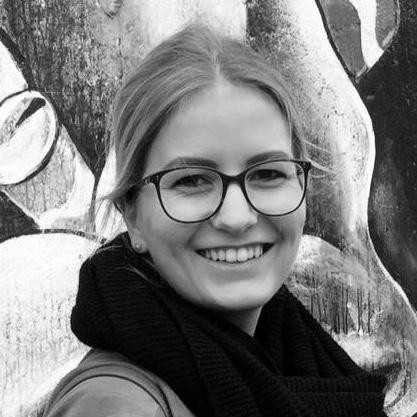
Sabrina Bacher
Sabrina Bacher is a PhD Student in the Niessing lab at the Helmholtz Center in Munich since 2020. She focuses on the cellular and molecular function of PURA and its implications in the neurodevelopmental disorder PURA syndrome. Already during her Master thesis in the Niessing lab she worked with induced pluripotent stem cells to study disease mechanisms of PURA syndrome, this work is now continued during her PhD. Before her PhD Sabrina earned her Bachelor and Master’s degree in Biotechnology from the MCI in Innsbruck, Austria. She is highly interested in studying the cellular and molecular basis leading to PURA syndrome in order to identify targets for future treatment strategies.
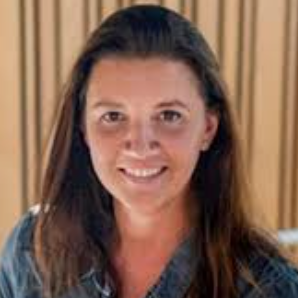
Diana Baralle
Diana Baralle holds a prestigious NIHR Research Professorship in Genomic Medicine, a personal chair at the University of Southampton and is a Consultant in Clinical Genetics, working at the interface of research and clinical service.
During her undergraduate training in Medicine at University College London, she completed an intercalated Degree in Human Genetics and subsequently trained first in Paediatrics and then Clinical Genetics.
She completed her doctorate and Action Medical Research Training Fellowship in the Department of Pathology, Cambridge University where she held an academic position before her current appointment in Southampton.
Prof. Baralle continues to see patients in clinic and runs a translational research group that drives forward functional genomics to improve diagnosis. She investigates novel causes for rare disorders and in particular the role of RNA and splicing in genetic disease. She was the senior investigator on one of the two first papers in 2014 describing PURA syndrome in the Journal of Medical Genetics and has worked on PURA research since.
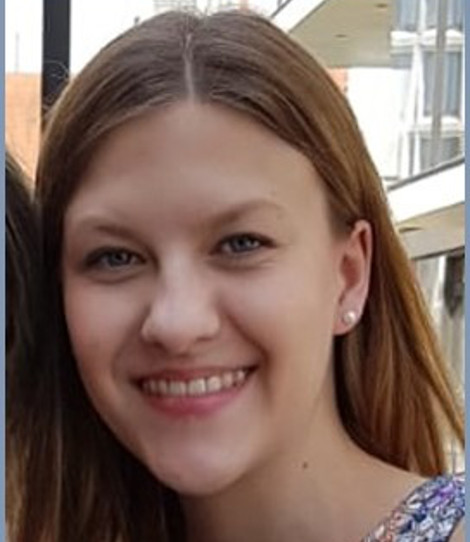
Sandra Burczyk
Sandra Burczyk is a PhD student in the Institute of Pharmaceutical Biotechnology at the University Ulm (Germany). She studied Biochemistry and Pharmaceutical Biotechnology at the University Ulm and the University of Applied Sciences in Biberach (Germany). Her current research focuses on cellular functions of the neuronal transport factors PURB and PURG and their interplay with PURA. She is particularly interested in the DNA and RNA interactions of PURB.
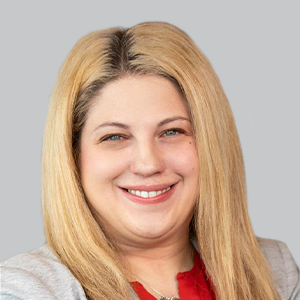
Dr. Jessica Duis
Dr. Jessica Duis is an Associate Professor of Pediatrics and Genetics at Children’s Hospital Colorado, University of Colorado. She did her medical training at Johns Hopkins School of Medicine in Baltimore, MD. She completed a post-doctoral fellowship in the Johns Hopkins Department of Psychiatry and Behavioral Sciences. She is a board-certified pediatrician and medical geneticist who practices in the area of genetics and complex/special care pediatrics and primarily performs diagnostic work up and management for individuals with rare disorders focused on neurogenetic conditions and rare genetic causes of obesity and metabolic conditions. She has focused her career on chromosome 15 disorders including Angelman Syndrome, Duplication 15q, and Prader-Willi syndrome. She has founded and built Centers of Excellence for Angelman, Prader-Willi, duplication 15q, and Pitt Hopkins Syndromes.
Dr. Duis’ career has spanned translational, clinical and bench research. She is passionate about establishing standards of care and personalized therapeutic interventions for individuals with neurodevelopmental disorders to improve quality of life on a day-to-day basis. She has designed and worked on many clinical trials and currently focuses on management guidelines and establishing outcome measures that quantitatively capture clinically significant features of neurodevelopmental disorders in the natural environment. She lives in Colorado with her husband and three kids, and enjoys spending time with her family outdoors.
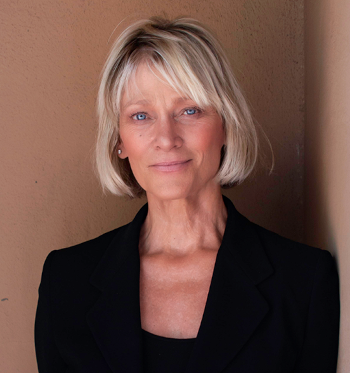
Juliet Erickson
Juliet Erickson is an executive coach, communication specialist and author. She consults with international corporate executives and individuals who want to see their dreams, ideas and projects come to fruition.
Juliet has also had four books published – The Art of Persuasion (Hodder Mobius, 2004), Nine Ways to Walk Around A Boulder (Kyle Cathie, 2008),The Nimble Negotiator: Beat Negotiation At Its Own Game (CreateSpace, 2014), Power Skills: A Masterclass for Women in Body Language and Communication (Eddison Books, UK April 2020)
An example of one of Juliet’s many high profile accomplishments was her successful communication coaching and consulting to the London Olympic Bid Team during the critical visits from the IOC and the lead up to the final presentation. Juliet worked with the team to help pull off this incredible coup for the city of London.
She works with business leaders and managers, entrepreneurs, TED speakers, politicians, academics, lawyers, scientists, sportsmen and women, entertainers and public figures in organizations around the world as well as many individuals from all walks of life who are facing a make or break moment in their personal lives and when communicating effectively is critical.
A Californian by birth Juliet commutes regularly between Santa Fe, New Mexico, New York, London and Nairobi and wherever her clients need her to be. She teaches online and in-person at Stanford Continuing Studies and is a sought-after speaker worldwide. She describes what she does as ensuring her clients have the focus, force and energy to achieve their objectives and win more often; to facilitate confidence, clarity and momentum.
In l989, Juliet became a founding partner of Rogen International, a global communication consultancy that develops skills and strategies for individuals in high stakes communication. Juliet was responsible for global growth of the company and was involved in establishing offices in Sydney, Los Angeles, New York and London.
She has also studied compassion cultivation at Stanford’s Compassion Institute.
Based in Santa Fe, New Mexico she enjoys high altitude Spinning, Pilates, Yoga and being walked by her dogs.
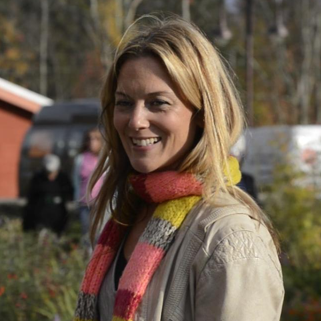
Jennifer Franck
Jennifer Franck MS, RD CDN is the Assistant Chief of the Department of Nourishment Arts (DNA) at The Center for Discovery. DNA is a unique department which features the collaboration of farmers, chefs, and nutritionists to optimize the use of whole, nutrient dense foods as a foundational therapy for health and healing – much of which is grown onsite.
Jennifer’s work for the last 20 years has focused on how nutrition can treat and sometimes reverse chronic disease, specifically in ALS, cancer, dementia, Alzheimer’s disease, diabetes, and obesity. She has worked with individuals with developmental disabilities including autism spectrum disorder (ASD) for over 10 years. She is currently conducting research looking at how whole foods can affect outcomes in ASD.
Jennifer co-authored the nutrition chapter of the book “Autism and The Stress Effect” with Dr. Theresa Hamlin and contributed to the book “Feeding the Heart” which highlights the DNA program’s “Seed to Belly” philosophy alongside recipes from partnering DaVinci Master Chefs. She has appeared on nutrition related programming for Fox and PBS.
She received her Master of Science in Clinical Nutrition from New York University.
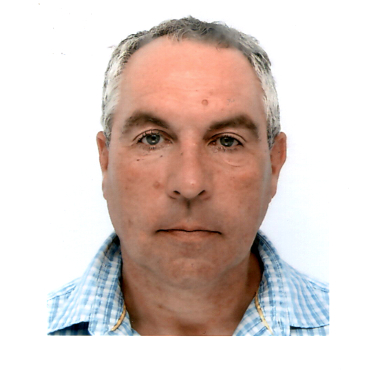
Matt Guille
Matt Guille grew up on the tiny island of Guernsey before obtaining his degree and PhD in Biochemistry at King’s College London. After 3 years of postdoctoral work in cell culture at what is now the Crick Institute Matt returned to working on gene regulation in the frog Xenopus, his PhD subject. At the University of London’s Developmental Biology Research Centre he was part of the team that discovered how Gata transcription factors control cardiovascular system formation. Matt then established his own lab, continuing these studies at Portsmouth on the South Coast of England until he was asked by the Xenopus research community to create a resource centre for genetics in the model. Work on this began in 2006 and the EXRC is now the largest centre for such studies, with visitors coming to train and do experiments from all over the world. With the advent of gene editing, which works extremely well in the frog, Matt sought collaborations with clinical geneticists to test whether the frog could be a useful tool to help them diagnose and understand rare genetic diseases. Among the diseases he and his colleagues have discovered and/or investigated with Sarah Ennis and Diana Baralle at Southampton is PURA. In his spare time Matt coaches on Britain’s Olympic rifle pathway.
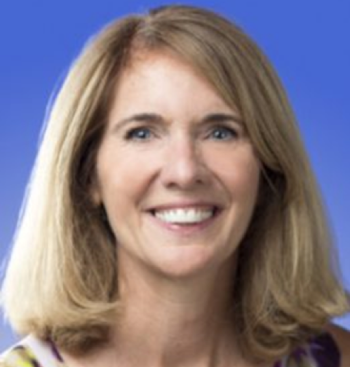
Terry Hamlin
President, Center for Discovery
Dr. Terry Hamlin, author of “Autism and the Stress Effect,” is the President at The Center for Discovery, a New York State designated Center of Excellence for children and adults with complex conditions, such as autism. Dr. Hamlin with her colleagues has developed a lifestyle medicine approach for treating people with complex forms of autism and other chronic conditions called the HealthE6. This approach targets six pillars of health and functioning in order to decrease chronic stress and promote health, well-being and happiness throughout the lifespan. Dr. Hamlin also developed the first of its kind research initiative on the study of psychophysiology using cutting-edge bio-sensor technology to study how stress contributes to health outcomes and challenging behaviors. For more on The Center for Discovery see ABC’s Good Morning America segment: http://bit.ly/TCFDGMA2019.
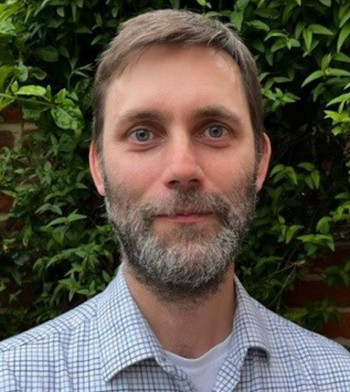
David Hunt
Dr David Hunt is a Consultant Clinical Geneticist, based in Southampton, UK. He has been a member of the Wessex Clinical Genetics Service since 2012 and has been working as a consultant since 2016. He has an appointment as an Honorary Research Fellow at the University of Southampton.
Whilst an undergraduate in Medicine at St Bartholomew’s and the Royal London School of Medicine and Dentistry, he completed an intercalated bachelor’s degree in Biochemistry at University College London. He subsequently transferred to the MBPhD Programme at University College London and completed an intercalated PhD in Molecular Pathology.
Dr Hunt then completed his Foundation and Core Medical Training in London, before relocating to Southampton in 2012.
He has co-authored several peer-reviewed articles about PURA syndrome, including one of the first two papers characterising PURA Syndrome in October 2014. He was also involved in organising the first PURA Syndrome Annual Conference in the summer of 2015 and he continues to work closely with the PURA Syndrome Foundation.
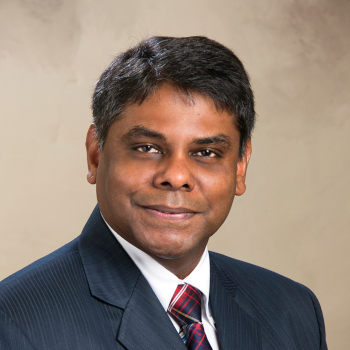
Dr. Stanley Iyadurai
Dr. Iyadurai is a pediatric neurologist who specializes in neuromuscular medicine at Johns Hopkins All Children’s Hospital. He joined the medical staff in 2019.
Previously as an assistant professor of neurology and a neuromuscular specialist, Dr. Iyadurai had appointments at The Ohio State University/Nationwide Children’s Hospital and Saint Louis University/Cardinal Glennon Children’s Hospital. Dr. Iyadurai specializes in neuropathies, myopathies, neuromuscular junction disorders including muscular dystrophies and motor neuron disorders, with a special interest in congenital myasthenic syndromes.
At The Ohio State University, he also directed the Neuromuscular Genetics Clinic. Dr. Iyadurai performs electromyography (EMG) and nerve conduction studies, and reads muscle and nerve biopsies to diagnose various neuromuscular conditions. Dr. Iyadurai has sub specialization training in clinical neurophysiology, neuromuscular medicine and clinical neuromuscular pathology and is recognized as an expert in the field, at the national and international levels. His research interests cover a broad range of topics within neuromuscular spectrum, with a special interest in channelopathies, including myasthenic syndromes, and he has published more than 40 peer-reviewed original research papers and presented at various international conferences.
Dr. Iyadurai earned his medical degree from the University of Minnesota. He completed an internship in medicine at the University of Minnesota. He then completed his residency in neurology at Barrow Neurological Institute in Phoenix, Arizona, and a fellowship in neuromuscular medicine at Washington University, St. Louis. He also holds a Ph.D. in molecular, cellular, developmental biology and genetics from the University of Minnesota.
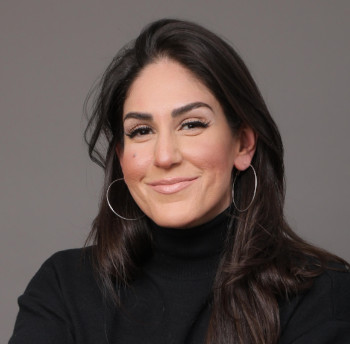
Shahroo Izadi
Shahroo is an award-winning Behavioural Change Specialist and Author of The Kindness Method and The Last Diet.
Her non-judgemental, compassion-based approach to changing habits is influenced by the experience that she gained across various roles in the addiction treatment field. She realised during this time that same sorts of simple, evidence-based tools that are helping people to achieve recovery from longterm addictions could be adapted and used to help anyone self-manage their everyday habits. Shahroo shares openly how the same exercises and approaches that now hands over to her clients and readers have enabled her to transform her own disordered relationship with food and body image as well as boost her self-belief, self-compassion and self-awareness across every life area. Throughout all of her work, Shahroo is dedicated to showing people how much easier behaviour change becomes when we learn to support, value and champion ourselves in the same way we do for the people we love most.
Shahroo has worked as Relapse Management Coach with Amy Winehouse Foundation, Keyworker and Criminal Justice Lead for Turning Point, Assistant Psychologist with NHS, Training Facilitator with Mind Westminster and Bid writer for the UK’s leading health and social care organisations. She also served as a member of faculty at The School of Life and serves as a psychosocial support ambassador for Indigo Volunteers, who provide refugee aid.
She has, accredited and delivered evidence-based training to frontline clinical staff across the UK in NHS Five Ways to Wellbeing, Cognitive Behavioural Therapy, Recovery Coaching, ITEP Mapping, Relapse Management, Strengths-based Assessment, Brief Intervention, Risk Assessment, Motivational Interviewing, Goal-Setting, Appreciative Enquiry, Acceptance and Commitment Therapy, Mutual Aid, Mindfulness-based Relapse Prevention, Group Facilitation and more.
Shahroo’s work has been featured in The Times, Forbes, British Medical Journal, The Guardian, Evening Standard, Marie Claire, BBC Radio, Women’s Health, Psychologies, Daily Mail, Women’s Health, Grazia, Red, Good Housekeeping. In addition to regular Guardian Masterclasses, Shahroo delivers a range of personal and professional development workshops for organisations including Facebook, Google, Bauer Media, JP Morgan, Warner Music, Fred Perry, HSBC, Proctor and Gamble, ING and M&C Saatchi.
In 2019, Shahroo was named Thought Leader of the Year by the Baton Awards at The House of Lords.
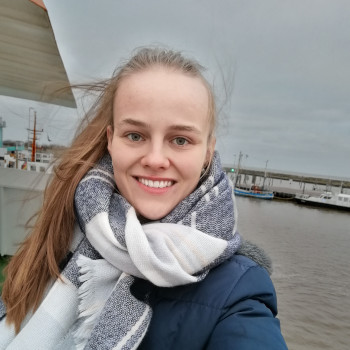
Carolin Ketteler
Carolin Ketteler started her PhD in October 2021 in the Niessing lab at the Helmholtz Center Munich. She has a Bachelor’s and Master’s degree in Biochemistry from the Leibniz University and the Medical School in Hanover. Her research focuses on identifying molecular pathways in the cell in which PURA plays a key role and which are impaired in PURA syndrome.
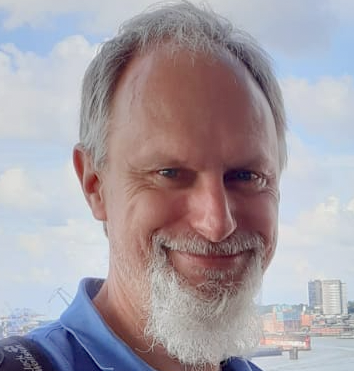
Dr. Dierk Niessing
Professor Dr. Dierk Niessing has over 25 years of experience in biomedical research and currently serves as research liaison to the PURA Syndrome Foundation. He studied Biology and did his PhD at the Max-Planck-Institute for Biophysical Chemistry (Germany). After research visits at The Rockefeller University (New York City) and SGX Pharmaceuticals INC (San Diego), he became a research group leader at the Helmholtz Zentrum München. Since 2017 he also serves as head of the Institute of Pharmaceutical Biotechnology at the Ulm University (Germany). Both labs, in Munich and Ulm, use structural, biochemical and stem cell-based approaches to understand the molecular underpinnings of the PURA Syndrome.
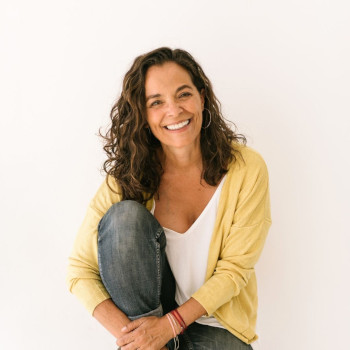
Angels Ponce
I’m Àngels Ponce. I started my training as a social worker and Family Therapist. Subsequently, I specialized in accompanying the mourning and grieving. I am also a certified Mindfulness instructor.
I have been accompanying families with children with disabilities for more than 35 years, especially at the time of diagnosis, offering tools to improve their well-being.
In addition, I am an author of several books, provide training for professionals, and speak at conferences.
I began my professional career as the coordinator for Family Services at DinCat, which provides services to people with disabilities in Catalonia. Later, I worked for 15 years at Nexe Foundation, which provides care for children with multiple disabilities and their families.
I started the “Afecto Mariposa,” a Spanish NGO managed by and providing support for families with disabled children.
To Support the PURA Foundation and Future Events
Donate Now!
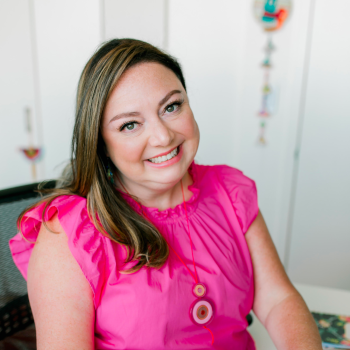
Rachael Rose
Rachael Rose is the owner and founder of Creative Speech Therapy NYC. She is nationally certified through the American Speech and Hearing Association and state licensed in New York. She also holds the certificate of Teacher of Students with Speech and Language Disabilities (T.S.S.L.D). Rachael earned her bachelor’s degree in Hearing and Speech Science from the University of Maryland and her Master’s degree in Speech-Language Pathology from Loyola University. She worked for over 10 years in public schools, Early Intervention, Child Find, and sensory gyms. She expanded her work into the private practice sector in 2016. Over the last 7 years, she has earned 3 awards for post-graduate education work in the areas of pediatric feeding and speech/language with specialized training in orofacial myology PROMPT, SOS, Talk Tools level 2, and TOTs. Throughout her career, Rachael has focused on working with children with multiple disabilities and significant needs. Rachael speaks publicly about pediatric feeding, oral placement therapy, speech/language development, and social skills. She is a creative therapist who focuses on tailoring individualized therapeutic programs for each child based on her knowledge of traditional and innovative techniques. She strongly encourages collaboration with parents, teachers, and other therapists.
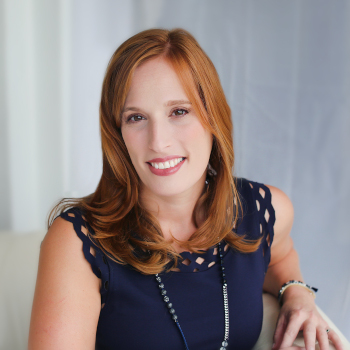
Dana Rosenbloom
Dana Rosenbloom has a Master’s degree in Infant and Parent Development and Early Intervention and has been working with children and families for over 15 years. Dana believes strongly that every parent and caregiver deserves to feel competent and joyful when they are with children, and that every child should feel self-confident and have the opportunity to reach their fullest potential.
Dana’s Kids is grounded in the philosophy that communication with, and education for, parents about the work that is being done with a child are integral to the growth process. This focus helps parents feel empowered and provides them with strategies for carryover and consistency. Additionally, Dana advocates for a team approach. Collaboration with parents, a child’s other caregivers, family members, teachers, school, and therapists, is essential to making the best plan for a child and family.
Dana’s Kids provides home, school and web-based parent education, play and behavior therapy, and case coordination services. Dana is also available for parent and professional development workshops. To learn more about Dana and Dana’s Kids, and to subscribe to her FREE newsletter, please visit www.DanasKids.com. You can also follow Dana on Facebook: DanasKids and Instagram: Danas.Kids
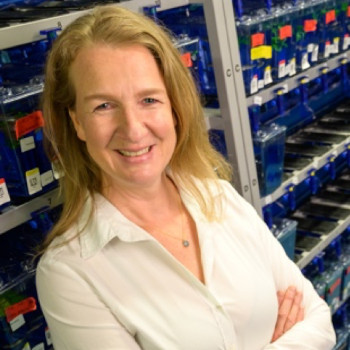
Bettina Schmid
Dr. Schmid is a research group leader and head of the Zebrafish Core Unit at the German Center for Neurodegenerative Diseases in Munich, Germany. She has a long-standing interest in using zebrafish genetics to generate disease models of neurodegeneration and to understand the physiological function of disease-associated proteins. As a trained developmental biologist and geneticist, she was one of the first to employ the CRISPR/Cas9 genome editing system in zebrafish to generate disease models. Her research includes the characterization of the physiological function of PURA, Alzheimer, Amotrophic Lateral Sclerosis and Frontotemporal Dementia zebrafish models.
By understanding the molecular pathways that are impaired in disease models we hope to identify specific drug targets for patients.
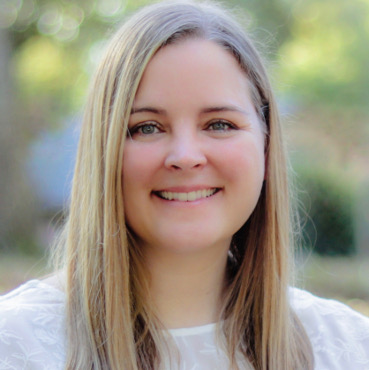
Amanda Shanks
Amanda is the President of the PURA Syndrome Foundation. She is a Licensed Clinical Mental Health Therapist who owns a private practice in Charlotte, NC. Amanda is passionate about the rare disease community, previously serving as the Director of Fundraising for the PURA Syndrome Foundation, founding and leading the Annual World Rare Disease Day Rally of Charlotte, and serving as a founding member of the Rare and Undiagnosed Network of Charlotte (RUNCharlotte). She has represented the PURA Syndrome Foundation at various conferences hosted by Global Genes, NORD, and the EveryLife Foundation. In addition to her rare disease advocacy work, she previously worked for and volunteered at the Mecklenburg County Jail and serves as an Elder at her home church, Avondale Presbyterian. Amanda’s daughter, Taylor, was diagnosed with PURA Syndrome in 2018 at the age of 2.5.
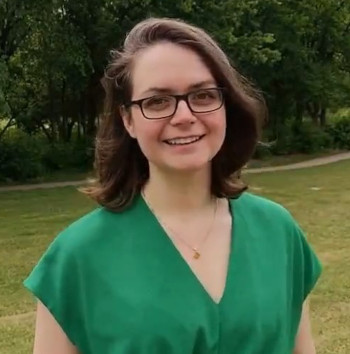
Dr. Sarah Sinnett
Dr. Sarah Sinnett has a B.S. in Chemistry from the Massachusetts Institute of Technology and a Ph.D. in Neurobiology from the University of North Carolina at Chapel Hill (UNC). She completed her postdoctoral training in Dr. Steven Gray’s lab at UNC, where her research focused on RTT gene therapy. Dr. Sinnett is now an Assistant Professor in Pediatric Neurology at the University of Texas Southwestern Medical Center (UTSW), where she is the pre-clinical primary investigator leading RTT gene therapy research. A clinical trial application for a regulated RTT gene therapy, developed by Dr. Sinnett and Dr. Gray, has been approved in Canada.
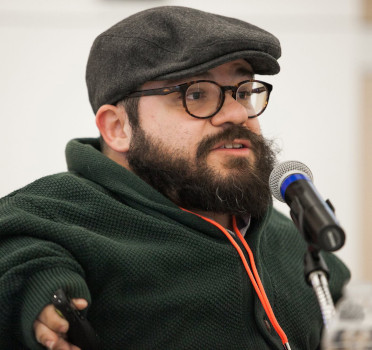
Dr. Joseph Stramondo
Dr. Joseph Stramondo (he/him/his) is an Associate Professor of Philosophy and director of the Institute for Ethics and Public Affairs at San Diego State University. In addition, for the 22-23 Academic Year, Dr. Stramondo will hold the Hubert Mader Visiting Professorship in Bioethics at the Albert Gnaegi Center for Healthcare Ethics at Saint Louis University. His research focuses on the intersection of biomedical ethics and philosophy of disability. Namely, he is concerned with how bioethics can be reframed by centering the lived experiences of disability as a crucial source of moral knowledge that should guide clinical practice, biomedical research, and health policy. He has published scholarship on topics ranging from informed consent procedures to reproductive ethics to pandemic triage protocols to assistive neurotechnology. He is devoting most of his present research effort to developing a book manuscript that is tentatively titled The Ethics of Choosing Disability. Dr. Stramondo currently serves as the Co-President of the Board of Directors for the Society for Disability Studies and has a long history of “moonlighting” as a disability activist with local, state, and national organizations.
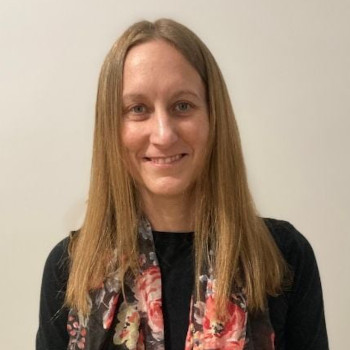
Caroline Thorpe
Caroline is a qualified English teacher who has been teaching in schools in Spain for over twenty years. When she began her career she became aware of the many diverse needs in education and encountered opportunities and challenges. She directed her focus and specialized in special education needs and began studying and exploring psychology and cognitive behavioral therapy. She has focused a great part of her career on helping children develop emotional awareness and self-knowledge which led her to developing her own programme on this, which allows teachers to be able to implement it directly in their classrooms.
She is devoted to bringing awareness about children with special needs and conveying their stories and points of view from a brighter point of view, so that they can be seen, not only for the struggles they live, but for the enormous amount of happiness and joy in their lives. She is also part of a foundation which focuses on bringing awareness and helping those with myalgic encephalomyelitis and fibromyalgia.
She is married to Fernando and the mother of two wonderful children, Angie and Joshi. Joshi was diagnosed with Pura in October 2015. Caroline, Fernando, Angie and Joshi live in Barcelona, Spain. Caroline can’t believe the luck she has had in life to have the amazing family she does.
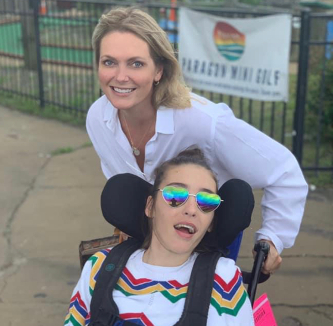
Melissa Vaught
Melissa is a mother of two, her oldest is Taylor who is 27 years old and was diagnosed with PURA Syndrome in 2016. Taylor’s younger brother TJ is 24 and a graduate from the University of Washington currently working as a financial consultant. He is the leader of Young Life Capernaum, which is a social group for young adults with special needs. Melissa is a full-time caregiver for her daughter and blessed to have such a special child.
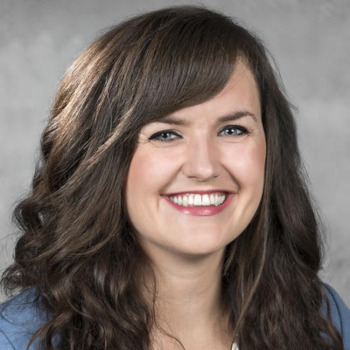
Dr. Rita Wyrebek
Dr. Rita Wyrebek, originally from Toronto, Canada, earned her medical degree at the Medical University of Gdansk in Poland. She then completed her Pediatrics residency at Cook County Health and Hospital System in Chicago, Illinois, where she continued on as Chief Resident. During this time, she completed a Master of Science in Clinical Research at Rush University Medical Center. She pursued fellowship in Neonatal-Perinatal Medicine at Johns Hopkins All Children’s Hospital in St. Petersburg, Florida and will be joining Saint Louis University/Cardinal Glennon Children’s Hospital as Assistant Professor of Pediatrics in the Division of Neonatology.
